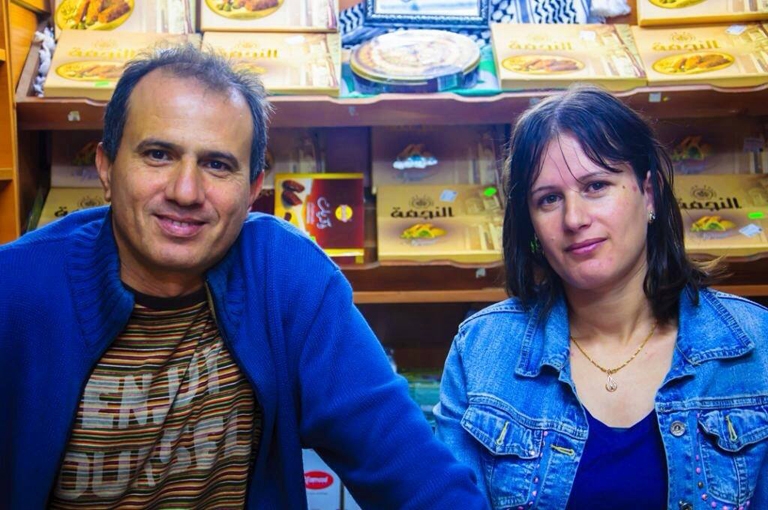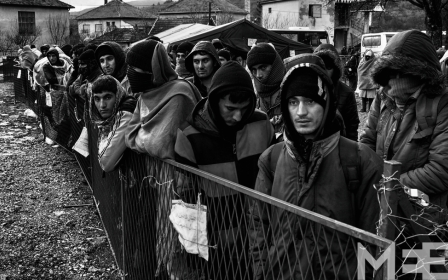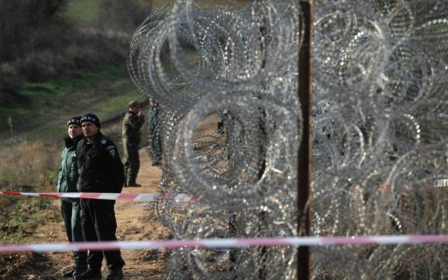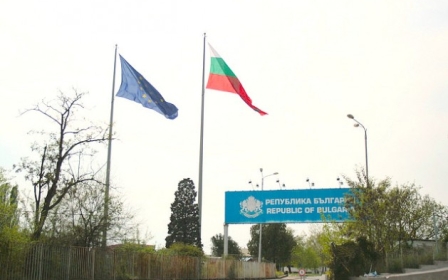Israel requests extradition of Palestinian from Bulgaria

SOFIA - On 16 December, 51-year-old Palestinian Omar Al-Nayyef Zayed, who had been living in Bulgaria for 22 years, received a disturbing letter from the post office. After reading it, he told his 17-year-old daughter Diana, who was in shock, not to be afraid and left his home in Sofia.
The letter sent from Bulgaria’s Cassation Prosecution was informing him that Israel had requested his extradition and he is required to surrender to the Bulgarian authorities, which are to undertake the necessary legal proceedings against him.
The morning of the next day, a dozen police officers surrounded the Zayed family’s apartment building, while five of them entered their home looking for him.
“We were really scared, we were still sleeping [when they came]. They checked everywhere in all the wardrobes and under the beds, searched my father’s clothes for documents. They questioned us and then left with my older brother,” said Diana. She said the police officers who came searching for her father did not present a search warrant or any other documents. They released her brother after an hour of questioning at the police station.
According to the prosecution’s letter obtained by Middle East Eye, Israel accuses Zayed and two other Palestinians of the murder of an Israeli man in East Jerusalem in November 1986. Zayed was arrested and sentenced to life imprisonment in December the same year. In 1990, he was moved to a hospital in Bethlehem from where he escaped, eventually making his way to Bulgaria in 1994. Israel demands Zayed’s extradition based on the European convention on extradition, to which it became a signatory in 2012.
However, Zayed’s lawyer, Omar Muslah, said that this is a political case and therefore Israel cannot request his extradition based on the convention that applies only to criminal cases. Zayed was a member of the People’s Front for the Liberation of Palestine (PFLP) and part of the Palestinian resistance to Israeli occupation when he was arrested.
The news of the extradition request stirred fear within the Palestinian community since it could set a dangerous precedent.
“If the Israeli request [for extradition of Zayed] is approved, Israel will repeat it with many other countries,” said Palestinian poet Khairi Hamdan and prominent member of the Palestinian community in Sofia.
'The right to resist occupation'
Documents Muslah obtained from the Palestinian authorities show that Zayed’s membership in the PFLP was written in his indictment and that the Red Cross had listed him as a political prisoner in the 1980s. He said that the documents of the Israeli court decision would cast more light on the political nature of the case, but Israel has not handed them over to the Palestinian authorities.
“Palestinians have the right to resist occupation [...] Legally speaking, Israel is an occupying power and has to withdraw [from these territories], and not continue to provoke the population into [resistance],” said Muslah.
Before going into hiding, Zayed told his lawyer that he was tortured into confessing to the murder. Due to the torture he suffered, he succumbed to mental illness, and in 1990 he was transferred to a mental hospital in Bethlehem from where he escaped, his lawyer said.
Zayed’s daughter Diana said that when she was little, she would ask her father about his life in Palestine, and he would sometimes recount how he suffered terrible physical and psychological torture and how his captors threatened to kill members of his family and demolish his home.
UK-based criminal barrister Salma Karmi-Ayyoub said that ill treatment in Israel’s military justice system in the West Bank and Gaza is “endemic”. In Zayed’s case, the human rights violations he suffered – such as lack of due process, violation of his right to fair trial and torture – constitute another argument against his extradition, she said.
Karmi-Ayyoub, who previously headed an international litigation project at the Palestinian human rights organisation Al-Haqq, also pointed out that the European convention on extradition applies only to crimes committed within the territory of the signatory states.
“East Jerusalem is illegally annexed but not internationally-recognised as Israeli territory. Arguably therefore the treaty between Israel and Bulgaria does not apply to crimes committed in East Jerusalem and Israel cannot request extradition in this case,” she explained.
According to Karmi-Ayyoub if the Bulgarian court rules in favour of Zayed’s extradition, this could persuade other European courts to follow suit.
“Courts or national authorities might be persuaded in future cases that Bulgaria’s decision means this is the correct interpretation of the law,” she said.
Politically motivated extradition?
Fearing the potential consequences of Bulgaria approving the extradition request, the Palestinian community in Sofia has already made a number of efforts to clarify in front of various Bulgarian and international institutions the political nature of Zayed’s case, Hamdan told MEE.
Hamdan interprets Israel’s sudden request for Zayed’s extradition as politically motivated.
“In my opinion, Israel wants to apply pressure on all levels after the EU decided to impose strict labels for goods produced in illegal Israeli settlements in the occupied territories,” he said. “The Israeli authorities also want to prevent the Palestinian institutions and citizens from filing cases at the International Court in The Hague for Israeli war crimes.”
The PFLP has also called on the Bulgarian authorities not to hand Zayed over to Israel and to stop all legal proceedings against him, saying that international law on resistance to occupation should be applied to his case.
The Palestinian foreign ministry has sent letters to the Bulgarian government requesting that it deals with Zayed’s case.
Muslah said that for the case to be resolved, Zayed has to appear before the Sofia court.
“It is important to emphasise here that the Bulgarian authorities don’t have a say. Under this convention they are obligated to hand over the case to the Sofia prosecution, Sofia city court and the court of cassation to make a decision,” he said.
But Zayed has told his lawyer that he will not surrender until he is guaranteed that he will not be extradited to Israel.
Bulgaria has, historically, had close relations with both Palestine and Israel. The country formally recognised Palestinian statehood in 1988, when the former communist regime used to support the Palestinian Liberation Organisation. Bulgaria is also well regarded in Israel for its role in saving 50,000 Jews from the Holocaust during World War II.
The Palestinian and Israeli embassies had not responded to requests for comment by the time of publication of this article.
Middle East Eye propose une couverture et une analyse indépendantes et incomparables du Moyen-Orient, de l’Afrique du Nord et d’autres régions du monde. Pour en savoir plus sur la reprise de ce contenu et les frais qui s’appliquent, veuillez remplir ce formulaire [en anglais]. Pour en savoir plus sur MEE, cliquez ici [en anglais].




